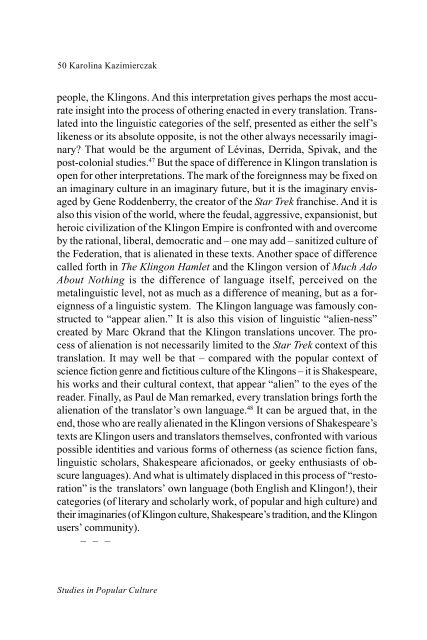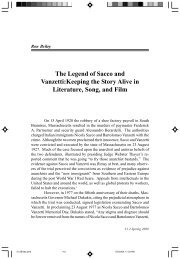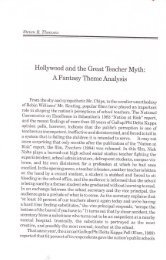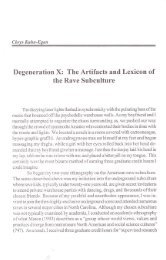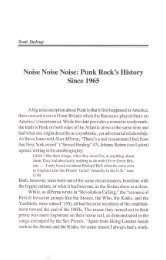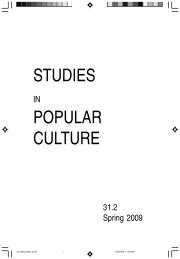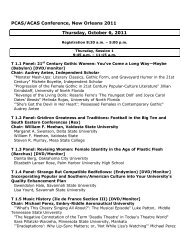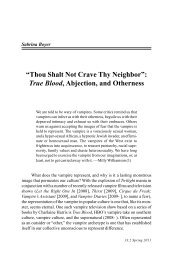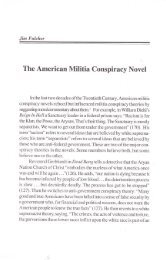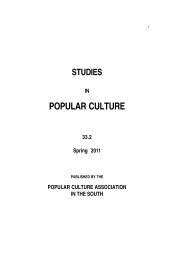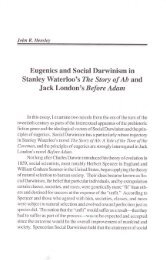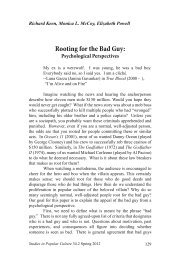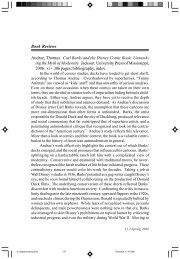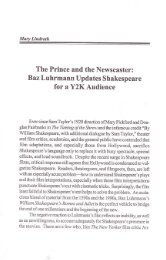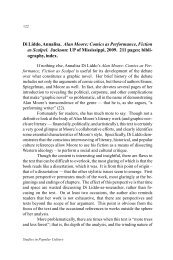Adapting Shakespeare for Star Trek and Star Trek for Shakespeare ...
Adapting Shakespeare for Star Trek and Star Trek for Shakespeare ...
Adapting Shakespeare for Star Trek and Star Trek for Shakespeare ...
Create successful ePaper yourself
Turn your PDF publications into a flip-book with our unique Google optimized e-Paper software.
50 Karolina Kazimierczak<br />
people, the Klingons. And this interpretation gives perhaps the most accurate<br />
insight into the process of othering enacted in every translation. Translated<br />
into the linguistic categories of the self, presented as either the self’s<br />
likeness or its absolute opposite, is not the other always necessarily imaginary?<br />
That would be the argument of Lévinas, Derrida, Spivak, <strong>and</strong> the<br />
post-colonial studies. 47 But the space of difference in Klingon translation is<br />
open <strong>for</strong> other interpretations. The mark of the <strong>for</strong>eignness may be fixed on<br />
an imaginary culture in an imaginary future, but it is the imaginary envisaged<br />
by Gene Roddenberry, the creator of the <strong>Star</strong> <strong>Trek</strong> franchise. And it is<br />
also this vision of the world, where the feudal, aggressive, expansionist, but<br />
heroic civilization of the Klingon Empire is confronted with <strong>and</strong> overcome<br />
by the rational, liberal, democratic <strong>and</strong> – one may add – sanitized culture of<br />
the Federation, that is alienated in these texts. Another space of difference<br />
called <strong>for</strong>th in The Klingon Hamlet <strong>and</strong> the Klingon version of Much Ado<br />
About Nothing is the difference of language itself, perceived on the<br />
metalinguistic level, not as much as a difference of meaning, but as a <strong>for</strong>eignness<br />
of a linguistic system. The Klingon language was famously constructed<br />
to “appear alien.” It is also this vision of linguistic “alien-ness”<br />
created by Marc Okr<strong>and</strong> that the Klingon translations uncover. The process<br />
of alienation is not necessarily limited to the <strong>Star</strong> <strong>Trek</strong> context of this<br />
translation. It may well be that – compared with the popular context of<br />
science fiction genre <strong>and</strong> fictitious culture of the Klingons – it is <strong>Shakespeare</strong>,<br />
his works <strong>and</strong> their cultural context, that appear “alien” to the eyes of the<br />
reader. Finally, as Paul de Man remarked, every translation brings <strong>for</strong>th the<br />
alienation of the translator’s own language. 48 It can be argued that, in the<br />
end, those who are really alienated in the Klingon versions of <strong>Shakespeare</strong>’s<br />
texts are Klingon users <strong>and</strong> translators themselves, confronted with various<br />
possible identities <strong>and</strong> various <strong>for</strong>ms of otherness (as science fiction fans,<br />
linguistic scholars, <strong>Shakespeare</strong> aficionados, or geeky enthusiasts of obscure<br />
languages). And what is ultimately displaced in this process of “restoration”<br />
is the translators’ own language (both English <strong>and</strong> Klingon!), their<br />
categories (of literary <strong>and</strong> scholarly work, of popular <strong>and</strong> high culture) <strong>and</strong><br />
their imaginaries (of Klingon culture, <strong>Shakespeare</strong>’s tradition, <strong>and</strong> the Klingon<br />
users’ community).<br />
– – –<br />
Studies in Popular Culture


